Valley Bounty: And on that farm she had a bit of everything: Little Brook Farm in Sunderland is a labor of love for farmer Kristen Whittle
| Published: 03-28-2025 10:22 AM |
Spring is here, and with it are signs of new life on farms around the Valley. Leaves are beginning to bud on fruit trees, farmers are preparing soil for the coming growing season, and at Little Brook Farm in Sunderland, day-old baby lambs are bounding around the lambing barn.
Little Brook Farm is a labor of love for farmer Kristen Whittle, aided by her husband, Tom Norwood, and son, Travis Whittle. The fruits of their labor are many kinds of high-quality local meat, along with “heirloom quality” wool blankets and many opportunities for the community to learn and engage with local food and farming.
“My goal is to raise happy, healthy animals in a humane way,” says Whittle. “We’re fortunate, in part because of the Local Hero campaign from CISA (Community Involved in Sustaining Agriculture), that there’s a good market for local meat here, and many customers who want this too.”
Name any common farm animal and there is a good chance Whittle has raised it. Yet undeniably, sheep and border collies have always been the heart of her farm. Everything else revolves around them, including two llamas that help guard the sheep, three retired milking goats, and chickens, ducks, turkeys, pigs, and cows that have also been raised for meat. Two horses, two mini ponies, and a donkey also star during school visits and children’s farm camps Whittle hosts during school breaks.
Border collies do not make the best family pets, Whittle says, because their boundless energy, bright minds and craving for a job make them a handful. However, those traits make them wonderful working dogs, particularly for herding sheep. In many ways, Whittle’s collies are her primary farm staff. She also competes with them at local events and offers herding demonstrations.
The sheep Whittle raises have been bred for their soft wool and quick growth on pasture, producing both fleece and meat for sale from the same flock. “I have a baseline of about 30 ewes,” she explains. “When they lamb, I have a lot more for a while, because most of them have twins.”
When first marketing her wool, Whittle sold to hand-spinners straight from the farm or at events at the Big E in West Springfield, but neither outlet was very stable or profitable. Then came the blessing blanket idea.
“I loved the thought of making blankets that would last long enough to be handed down generations,” she says. “A lot of people give them as gifts, to kids going off to college, couples getting married, and things like that.”
Article continues after...
Yesterday's Most Read Articles
 Northampton Housing Authority boss placed on leave
Northampton Housing Authority boss placed on leave
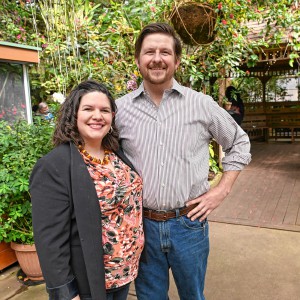 Hopeful buyers emerge for Magic Wings butterfly conservatory in South Deerfield
Hopeful buyers emerge for Magic Wings butterfly conservatory in South Deerfield
 UMass Chancellor Reyes outlines changes amid financial uncertainty under Trump administration
UMass Chancellor Reyes outlines changes amid financial uncertainty under Trump administration
 Ready to roll on roads: Amherst priority list tees up $4.55M to rebuild some of town’s worst stretches
Ready to roll on roads: Amherst priority list tees up $4.55M to rebuild some of town’s worst stretches
 UMass hockey: Minutemen fall to Western Michigan, 2-1, in Fargo Regional final
UMass hockey: Minutemen fall to Western Michigan, 2-1, in Fargo Regional final
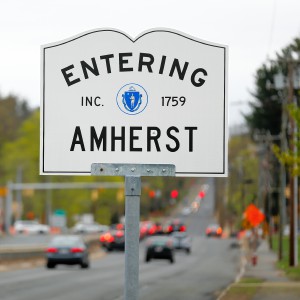 Amherst School Committee OK’s budget with no classroom layoffs, but spending plan is $500K more than town recommends
Amherst School Committee OK’s budget with no classroom layoffs, but spending plan is $500K more than town recommends
These soft and surprisingly warm blankets, measuring four-by-five feet, are made at the oldest wool mill in North America, located on Prince Edward Island in Canada. Every few years, after collecting enough fleeces, Whittle drives a carload of wool up to the facility. Once the blankets are mailed back, she sells them to directly to local customers and ships them nationwide.
“If I could develop more of a market for these blankets, I’d love to pay other farms to use their wool too,” she says. “I love it when farms in our area can collaborate. Especially small farms, since on our own we don’t have economies of scale.”
While that wool collaboration has not taken shape yet, Whittle has collaborated with other local farms to supply chicken and lamb to local restaurants, like Great Falls Harvest in Great (Turners) Falls. Because restaurants often need a steady supply of ingredients, it is sometimes harder for one small farm to keep up with that demand. If several farms work together, it is easier to meet that demand while also ensuring a market for those farms.
Whittle’s connections with other farms run wide and deep, and many business opportunities are born from these relationships. For another example, “my blankets sell quite well down at Blossoming Acres, Lenita Bober’s place in Southwick,” she says. “Lenita’s also told me she can sell all the lamb I can get her, and she’s started raising pigs again, so I’ve been buying pork from her.”
Besides the lamb she sells to Hager’s Farm Market in Shelburne Falls, the rest of her lamb, turkey, chicken, beef, and pork is sold straight off the farm. Interested customers can see a list of possible cuts – and wool blankets – on the farm’s website (littlebrookfarm.com) and contact the farm directly to determine availability and place an order.
Recently, Little Brook Farm was awarded a Food Security Infrastructure Grant from the state to buy a new walk-in freezer for storing their meat. “Before that I used a bunch of chest freezers,” Whittle says. “They aren’t very energy efficient, it’s hard to find things, and when one of them failed while I was away and I had to throw away about $6,000 worth of meat. That hurt.”
In contrast, the new freezer is highly efficient, can connect to a back-up generator, and is much bigger. In fact, thanks to this grant, Whittle will more than double the number of meat chickens and Thanksgiving turkeys she raises this year, putting public dollars to public good by immediately raising more local protein. In her words, “it’s a game-changer.”
At the end of the day, it is not just the meat raised with care, or the blankets, or any of the camps and educational activities that define Little Brook Farm. It is all of them woven together.
“If you’re a small farm, you have to make use of all your resources,” Whittle says. The result, in her case, is a dizzying array of farm projects that evolve as the seasons turn. It works because all these projects fit together and create synergy – the same kind of synergy Whittle feels Little Brook and other local farms create by working together.
“The work is exhausting sometimes,” she says, “especially when you’re up all night lambing. But I love the animals, and it truly makes me happy.”
Jacob Nelson is communications coordinator for CISA. To learn more about local farms near you contributing to the vibrant local food economy in western Massachusetts, visit buylocalfood.org.

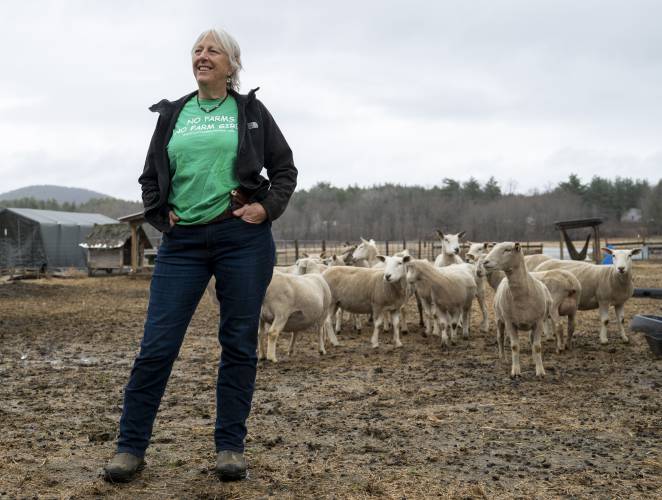
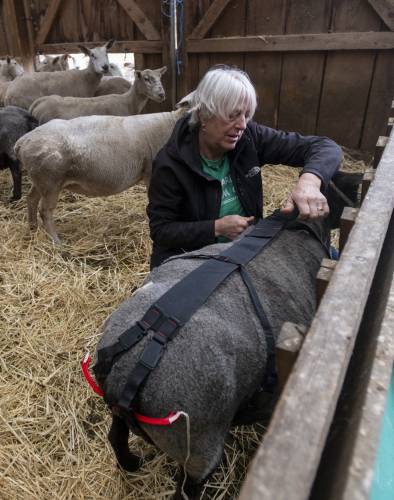
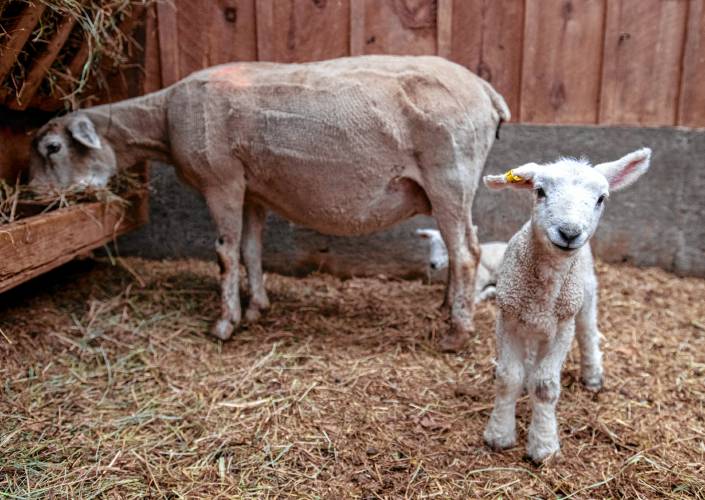
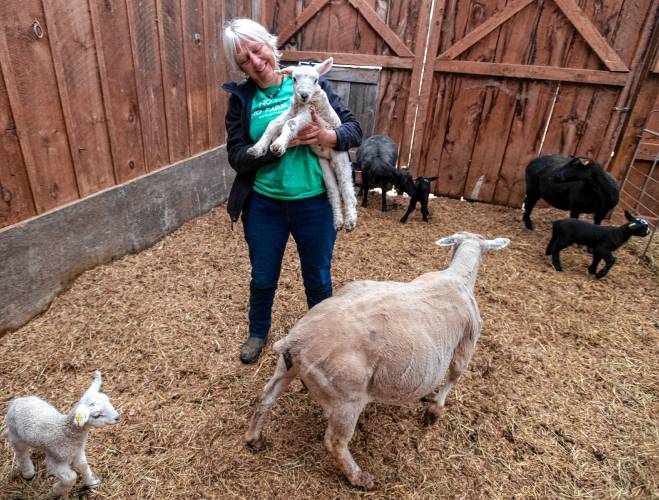
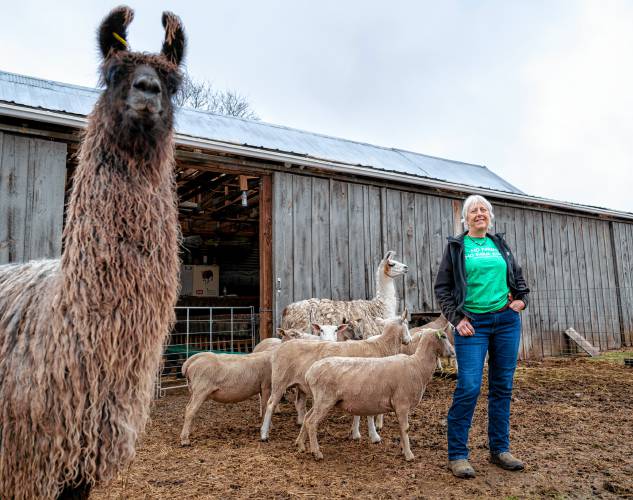
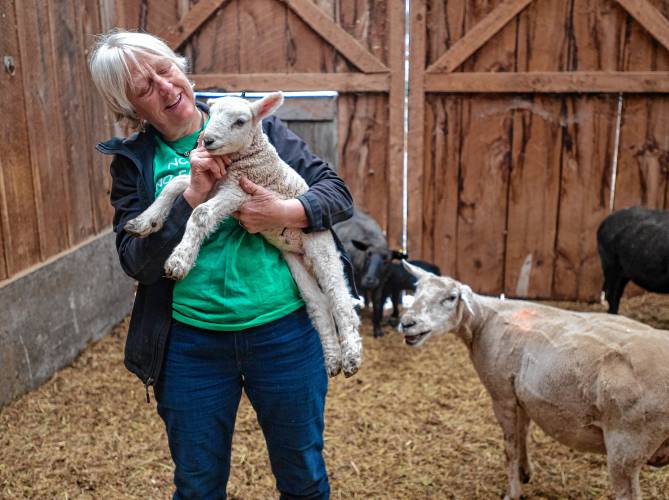
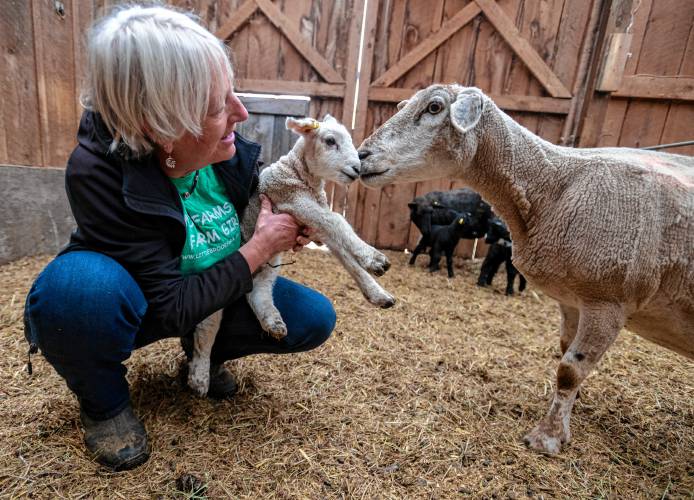





 Historic speech echoes two centuries later: ‘A Light Under the Dome’ recalls the first American woman to speak to a legislative body
Historic speech echoes two centuries later: ‘A Light Under the Dome’ recalls the first American woman to speak to a legislative body ‘His notes will linger forever’: Remembering Young@Heart accordionist and Springfield College professor Chris Haynes
‘His notes will linger forever’: Remembering Young@Heart accordionist and Springfield College professor Chris Haynes Women’s history told through clothing: Shelburne Falls Area Women’s Club to host ‘Real Clothes, Real Lives: 200 Years of What Women Wore’ author, April 9
Women’s history told through clothing: Shelburne Falls Area Women’s Club to host ‘Real Clothes, Real Lives: 200 Years of What Women Wore’ author, April 9 ‘A woman who should be remembered’: New play about the life of Frances Perkins, the brains behind FDR’s New Deal, April 5 and 11
‘A woman who should be remembered’: New play about the life of Frances Perkins, the brains behind FDR’s New Deal, April 5 and 11
